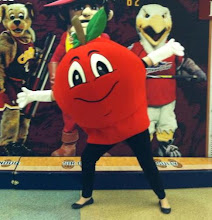Check out more photos HERE
To make a donation to the Hunger Network, visit us at HungerNetwork.org
 In addition to tomatoes, the Parma Lutheran community garden also harvests peppers, green beans, lettuce, kale, radishes, eggplant and more – and this year have added potatoes to the mix. In just three short summers, the garden’s donations top 3,100 pounds- saving the Center thousands of dollars and providing farm fresh nutritious produce to the hungry in the community.
In addition to tomatoes, the Parma Lutheran community garden also harvests peppers, green beans, lettuce, kale, radishes, eggplant and more – and this year have added potatoes to the mix. In just three short summers, the garden’s donations top 3,100 pounds- saving the Center thousands of dollars and providing farm fresh nutritious produce to the hungry in the community. Last, but certainly
not least is Sonia Nagpaul! Sonia joins the Network as the Summer Program
Intern. She lives in Lyndhurst and is currently a senior at Cleveland State
University studying Human Resources and Communications. She chose the Hunger
Network to gain some experience in the business side of an organization but she
has also enjoyed volunteering at the Ronald McDonald House and Montefiore
Nursing Home. Her duties in the Program Department include compiling and
inputting data from client surveys and assisting with the scheduling of product
delivery. She hopes to gain a job in
Human Resources with a Cleveland-area company upon graduation.
Last, but certainly
not least is Sonia Nagpaul! Sonia joins the Network as the Summer Program
Intern. She lives in Lyndhurst and is currently a senior at Cleveland State
University studying Human Resources and Communications. She chose the Hunger
Network to gain some experience in the business side of an organization but she
has also enjoyed volunteering at the Ronald McDonald House and Montefiore
Nursing Home. Her duties in the Program Department include compiling and
inputting data from client surveys and assisting with the scheduling of product
delivery. She hopes to gain a job in
Human Resources with a Cleveland-area company upon graduation.
What began as the Hunger Task Force thirty years ago, with just four food pantries has evolved into the Hunger Network of Greater Cleveland with over 100 pantries and hot meal programs strategically placed throughout Cuyahoga County. Through this organized network of food pantries and hot meal programs, the Hunger Network of Greater Cleveland is able to feed nutritious meals to 60,000 each month and 25,000 of those are children.
